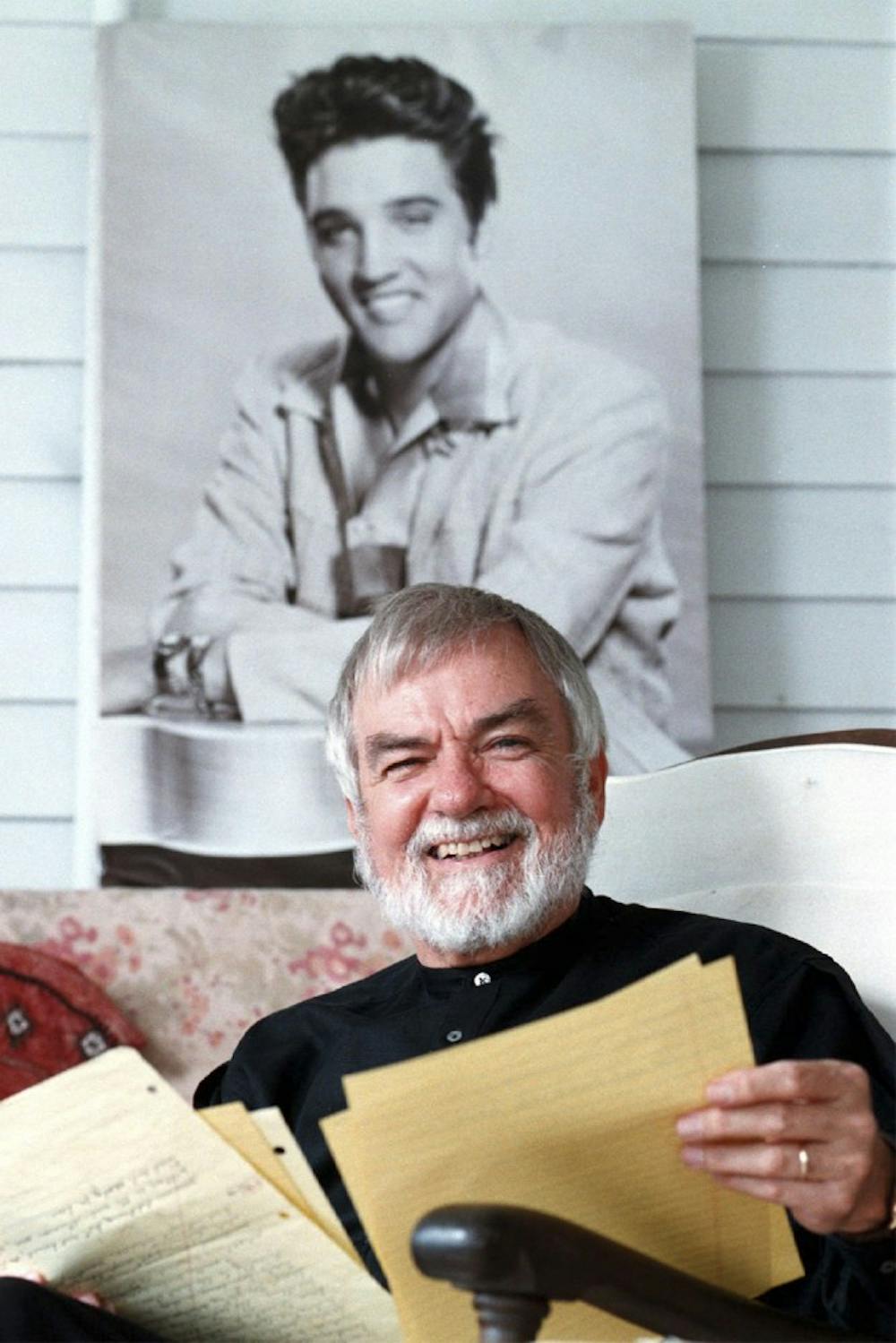Unlike other tributes to the king of rock ‘n’ roll, Williamson’s book discusses Elvis as a product of Southern culture — much like Williamson, himself.
“As I learned more about his life I wanted to feel what he felt there,” Williamson said in an early letter to his editor at Oxford University Press, Susan Ferber. “To the extent that I am a Southerner, a male, a son of farmers who came to town, I had a head start.”
A retired Lineberger professor of southern studies and race relations at UNC, Williamson has researched Elvis for 20 years, seeking to connect with his hometown roots. He moved to Memphis to walk the same streets as Elvis, visited his birthplace in Tupelo, Miss., and made 14 trips to his Graceland estate.
What separates Williamson’s book from other Elvis biographies is its focus on the southern origins of Elvis’ stardom.
“In my writing I sought to offer a reading of the life of Elvis Presley and the lives of girls and women in the 20th century in the South and in America,” Williamson said.
Williamson, who lives in Carol Woods Retirement Community with his wife, had help from Ferber and Donald Shaw, a professor in UNC’s School of Journalism and Mass Communication. Ted Ownby, a scholar of southern studies at the University of Mississippi, wrote the book’s forward.
Williamson’s “Elvis” is unique — he’s a southern man made popular by the girls of the South, Ferber said.
“The book gives life to the fan base in addition to the figure,” she said. “He tapped into Memphis society in new ways that gave rise to the book.”




